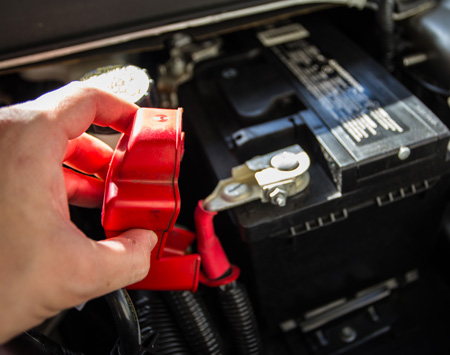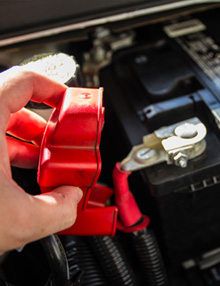Compared to sleek body styling or a luxurious interior, the battery isn't a part of a car that usually attracts much attention. However, a fully working battery is an essential part of your car's mechanics, and if it fails you could be left stranded with little or no warning.
The lead acid batteries used in modern cars are extremely reliable, but nothing lasts forever. Taking this into account, our next question is, "How long can a car battery last?"
Average Lifespan of a Car Battery
In daily driving, a car battery goes through a constant cycle of charging and discharging, and the stress this causes means its efficiency slowly falls away. Once it reaches a certain point, the battery can no longer recharge enough to provide the power your car needs to start up.
Depending on its type, a battery is good for around 500 to 1,000 full charging cycles, or about three to five years under average conditions.
However, this is only a rough figure, and the way a battery is used and the conditions it works in have a big effect on how often you'll need a car battery replacement.
What Determines
Car Battery Life?
Perhaps the most important thing that affects a battery's life is the climate it's used in. Batteries will fail more quickly in hotter conditions than cold ones, and high humidity will also reduce its charging efficiency more quickly.
There's not much you can do about your local weather, but if you can protect your car from extreme temperatures, your battery will thank you.
A battery's lifespan is also impacted by how much work it needs to do. The more gadgets, accessories and features your car has working at once, the more power will be drained. This means the battery goes through its charging cycle allowance more quickly.
Also, if most of your driving is for short distances, then the battery will be under a lot of strain through having to start the ignition frequently, without the long stretches of highway driving which would build the charge back up.
How to Prolong the Life of Your Car Battery
Here are a few tips to keep your car battery working longer:
- Try and keep it fully charged as much as possible by not using lights, air conditioning or other features when the engine isn't running
- Turn off any features such as GPS, audio players and Bluetooth if you don't actually need them.
- Avoid parking your car in direct sunlight to prevent overheating.
- Have the battery and electrical system checked around twice a year as part of routine maintenance. The experts at Batteries Plus will check your battery, starter and alternator free of charge.
- If you need to recharge your battery, always use a high-quality battery charger that provides a consistent voltage.
- Try and mix in some longer-distance driving as well as short city trips, to help keep your battery charged.
Modern batteries are highly reliable and perform extremely well, but eventually they'll all need replacing. Before buying a new one, read our guide on choosing the best battery for your car, or call your local Batteries Plus store to get helpful and friendly advice. And if you find you do need a new battery, our experts can help there, too, from installation to proper disposal of your old battery.

